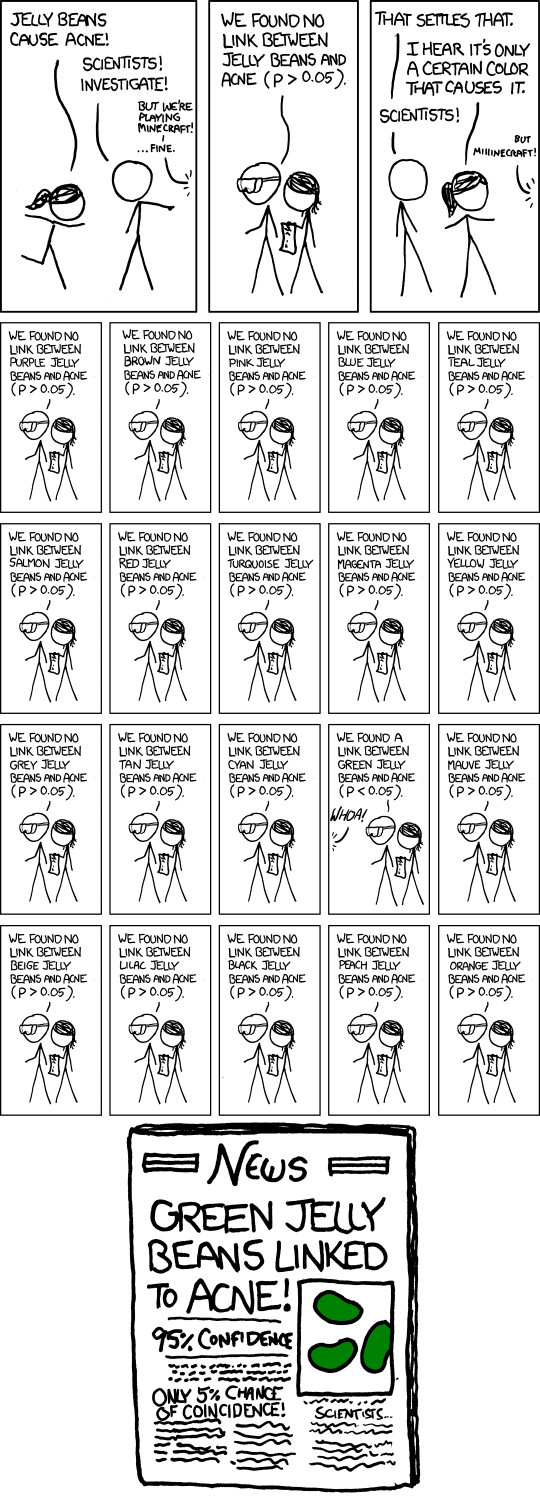« March 2011 | Main | July 2011 »
April 30, 2011
Masters Exams
An all too familiar experience.
Tip to Cris Moore.
posted April 30, 2011 08:45 AM in Humor | permalink | Comments (0)
April 26, 2011
Why students don't learn what we think we teach
It's that time of year when professors reflect on what their students have learned in the past semester. While mulling over my own class on the design and analysis of algorithms, by chance, I was pointed at this excellent lecture by Robert Duke, a professor of music and human learning at the University of Texas Austin, on "Why students don't learn what we think we teach" (hosted at Cornell University Videos).
Duke is captivating, and he makes a clear argument that students don't learn what we think we teach because they're too busy learning what we're actually teaching, which is, often, that precision is more important than understanding and that grades matter. The solution, he argues, is to teach, over and over, the things that we actually want our students to remember after the semester is over. And, that we should not defer learning about "The Good Stuff" until after they've suffered through boring prerequisites. Instead, we should teach the good stuff first and teach what we really enjoy.
This seems like pretty good advice, and I hope to be able to improve my courses by striving to follow it. The difficulty, of course, is trying to figure out what exactly are the most important ideas we want our students to remember after the course is over. Duke argues that many professors don't themselves have a clear idea of these things, which of course makes it difficult to teach in a way that emphasizes them. For quantitative fields like computer science, I think we sometimes convince ourselves that detailed problem sets are necessary to teach the quantitative (mathematics or programming) skills the students will need for more advanced work. But how much of what we really care about depends on those? For students destined for the computer industry, or for non-computer industries, what do we as computer-science teachers really want them to remember, even if they never write another line of code in their lives? Food for thought, for sure.
Tip to Larry Hunter.
Update 27 April 2011: While I'm on the subject [1], here's another fascinating video on teaching, this one a TED talk by Salman Kahn, the former hedge fund manager who started the Khan Academy by first doing short YouTube videos of simple math lessons and then expanded it to a fairly comprehensive-looking system for learn-at-your-own-pace education. Given how little time (and money) university professors and school teachers are provided to tinker with such novel course structures, it doesn't surprise me one bit that it was a hedge fund manager who developed this idea. I would very much like to introduce some of this stuff in my university courses, but the prospect of developing the videos from scratch is more than a little daunting!
-----
[1] For long-time readers, you've probably noticed that I've only posted videos and comics for the past two months or so. This is because I'm a new professor and new professors as a rule, true to the warnings I was given a year ago, struggle to find time for anything other developing their courses and learning how to teach. I don't find it ironic that I was hired as a professor on the merits of my ability to do things that my job now systematically prevents me from doing. Instead, I find it maddening. Putting that aside, last week, I was mulling over writing something about the recent pieces in Nature on the brokenness of the PhD system (here and here; to be honest, the articles are not as insightful as their titles suggest), which is, I think, intimately related to the ideas posed above about teaching.
That is, universities are not really in the business of providing job-training for the private sector, but increasingly that is what both the private sector and the students want universities to do. On top of that, university professors generally have very little experience outside the academy and we're hired mainly on the merits of our ability to conduct and communicate novel research to our peers, who are mainly other university professors and program managers at federal agencies. It's a strange situation, frustrating on all sides, perhaps. The strangeness is, I think, driven by pretty deep societal structures related to the priorities of the people with money (which is basically students and the federal government) and to the way employers select among applicants (academic degrees are signals of legitimacy, competency and prestige, which are easier to sort on than actually taking the time to evaluate a person individually). These things are so deep they're not going to change much anytime soon, and from my brief experience so far, seem likely to only get more pronounced. The question then, is into what shape will that pressure push universities, over the long run?
posted April 26, 2011 04:46 PM in Teaching | permalink | Comments (7)
April 16, 2011
Storm, by Tim Minchin
Tim's 9-minute beat poem sums things up probably better than I've ever done when I've played the same role.
Tip to Cris Moore.
posted April 16, 2011 04:09 PM in Scientifically Speaking | permalink | Comments (0)
April 06, 2011
Yes, exactly.

And another:
Tip to Rob Knight for the last one.
posted April 6, 2011 08:56 AM in Humor | permalink | Comments (1)